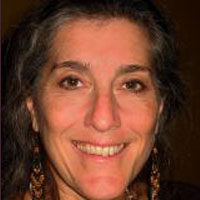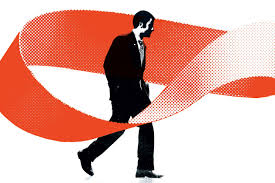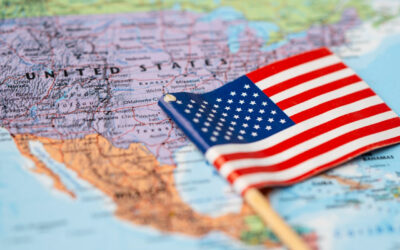 I woke up this morning thinking about habits; bad eating habits, in particular. The other day I was sitting in a movie theater watching a morbidly obese couple happily settle into eating their two giant tubs of buttered popcorn, two giant vats of cola, and some cheesy nachos too. Truthfully, I was dumbfounded, judgmental, and a bit grossed out.
I woke up this morning thinking about habits; bad eating habits, in particular. The other day I was sitting in a movie theater watching a morbidly obese couple happily settle into eating their two giant tubs of buttered popcorn, two giant vats of cola, and some cheesy nachos too. Truthfully, I was dumbfounded, judgmental, and a bit grossed out.
Reflecting upon this today, though, I realized that it’s all about habits. And we all drive our lives through habits. It’s how we function, it’s how we manage our lives. Indeed, we have habits that determine almost every aspect of our behavior — how we eat, how we run through the routines of our day, how we sit and sleep, what we wear, where we go, what we watch on TV, what we read. We also have habits of thought and feeling — who we believe or listen to, what we worry about, what we view as “normal” or “acceptable”.
Sometimes habits are of our own creation; we find a routine that works for us — say, how we drive to work, how we groom ourselves, or what we buy at the grocery store — and we repeat it. Quite often, our habits are taught to us or modeled by our parents. I have noticed that people with severe weight problems have entrenched ideas about what they “must” eat: “When you go to the movies, you must have buttered popcorn!”; “When you eat a baked potato, you must cover it with butter and sour cream and cheese”; “Every meal must be followed by dessert.” Often these habits are associated with love and comfort. Questioning them may even feel like an existential threat.
Other times, habits are molded by societal norms, advertising, and other forms of media. “Let’s all go to the lobby, and have ourselves a treat!” Or more recently, “Parents who think twice about vaccinating their children are idiots who should be mocked and jailed!” (Even if, at the same time, we acknowledge that modern medicine has been wrong about lots of other things and Big Pharma has a growing history of conflicts of interest, corruption and falsified studies, and patient harm.)
Of course, habits aren’t necessarily bad. We develop habits to help us navigate our lives. We can’t re-think every step we take in life. Habits make our lives more efficient and manageable. Cultural habits help our society function.
But habits can also be a trap. They help us to feel cozy and secure, but once something becomes a habit, you tend not to question it. Think about the various uses of the word “habit”: for example, “Habitat” or “Inhabit” (something you dwell within, all nice and safe and secure); or “Habitual” (repetitive and unthinking). Think about our stereotypes of old age and older people, going about their daily unchanging routines. Habits may feel safe, but they are deadening. Growth and life only comes from change.
As I discuss in Active Consciousness, the spiritual teacher Gurdjieff taught that habits tend to keep us “asleep.” In order to wake up to a greater state of awareness, we often need to jolt ourselves a bit. Sometimes he used simple physical exercises to achieve that effect — for example, making his students stand in awkward postures for a while, helping them to break habits of posture. As he pointed out, physical postures can even have a great influence upon the way we think. Travel to new lands is another great way to introduce novelty, growth, and change into our lives. So is learning a new skill, or entertaining a new idea or belief.
Gurdjieff also spoke about “shocks” that literally force people to rethink their beliefs and “buffers”. Buffers are beliefs that help people to feel safe and to rationalize their behavior. Indeed, when society’s buffers are questioned, people can become quite violent about defending them. Think about the long and difficult process our society has gone through in breaking through buffers of racial prejudice, or its treatment of LGBT people.
Parents whose children have been injured by vaccines (injuries that are often acknowledged by doctors and by the legal system; the CDC’s own VAERS database includes 66,274 serious injuries and 5878 deaths from vaccination that have occurred over the past 25 years), have had a “shock” that impels them to examine their previous beliefs about conventional medical wisdom. Rather than garnering our sympathy, however, their questioning rattles the very foundation of our greater society’s trust in fundamental medical beliefs; the media is then quick to brand them as cranks and fools — even dangerous. Reading this information may even be triggering an angry response in you as you read it.
Hopefully, of course, we can learn to examine our habits of behavior and thought without requiring a crisis or shock. The next time you feel bored and in a rut, as if one day is the same as the next, try to shake things up a bit. Decide to experimentally change one routine — even a small one, such as the order in which you perform some sequence of things — and see what happens! You might feel that spark of life within you ignite.
Or, if you are aware of a habit that you truly need to change, meditate, go within, and discover inner guidance that leads you to a life change that creates a sense of inspiration and joy within you. The meditation exercises in Active Consciousness can help you get there.
I’ll close with a quote from Hawaiian wise woman Nana Veary’s book Change We Must, which I discussed in last month’s newsletter. Nana sees God as the infinite energy of love around us, the fount of all creation, and each of us as co-creators with that energy. She used the following affirmation that stresses the importance of accepting change, because change is life.
“I let changes take place in my life… I accept all change as a spiritual adventure and begin the discovery of God in every new condition… I break all chains which bind me and walk free into God’s great experience of life.”




The solution to bad eating/health habits is simple: make people responsible for paying for their own health insurance.
Hi Amy!
It was nice to hear from you, thank you for your reply.
I like the thoughtful way you approached the couple in the theater. You were mindful of your own natural response and then examined it and replaced it with a more compassionate one. And not just a clinical one either. There is a difference. My hope, when I similarly “catch” myself in that situation, is that over time, the learned, deliberate, thoughtful response will replace the first one altogether. I don’t know if I should hope for that though because it seems to me that habits always involve NOT thinking. I don’t want to de-sensitize but rather question and better define my values, you know?
Today I’m going to try to be conscious of all the habits I have. I have changed two things lately that were habits that I decided were not in line with my values. One is that I stopped dying my hair. I have long black hair and my daughter likes to tell me that I now look like Cruella Deville, which is a name based on the combining of the words cruel and devil. I have a long list of reasons why I have made this choice but I won’t bore you with that. I also deactivated my Facebook account. I was never obsessed with it like I know some people are, but it was a distraction that paid little in the way of benefit towards the larger goals in my life. It’s only been day two of that last one, so we’ll see if I stick with it as I’d like to. I confess I also did it to avoid drama in my extended family that is going on right now.
I also experienced another change, on Sunday. My sweet and loving dad died after 86 years on this planet. The doctors told us over 20 years ago that he wouldn’t last another year with his stroke risk and weight. But oh he did. I will be traveling to Orange County for the services in the next week or so. I sure hope that I can keep my focus on how I want to behave and not get pulled into habits, mindsets, and defenses that were formed in my childhood. I have a lot of bullies in my family. Wish me luck!
Well, it’s been nice spending these few minutes with you :-). I really enjoy reading the compassionate and educated world view you have, and I like to imagine that when I write my thoughts, you understand.
All the best,
Rosie